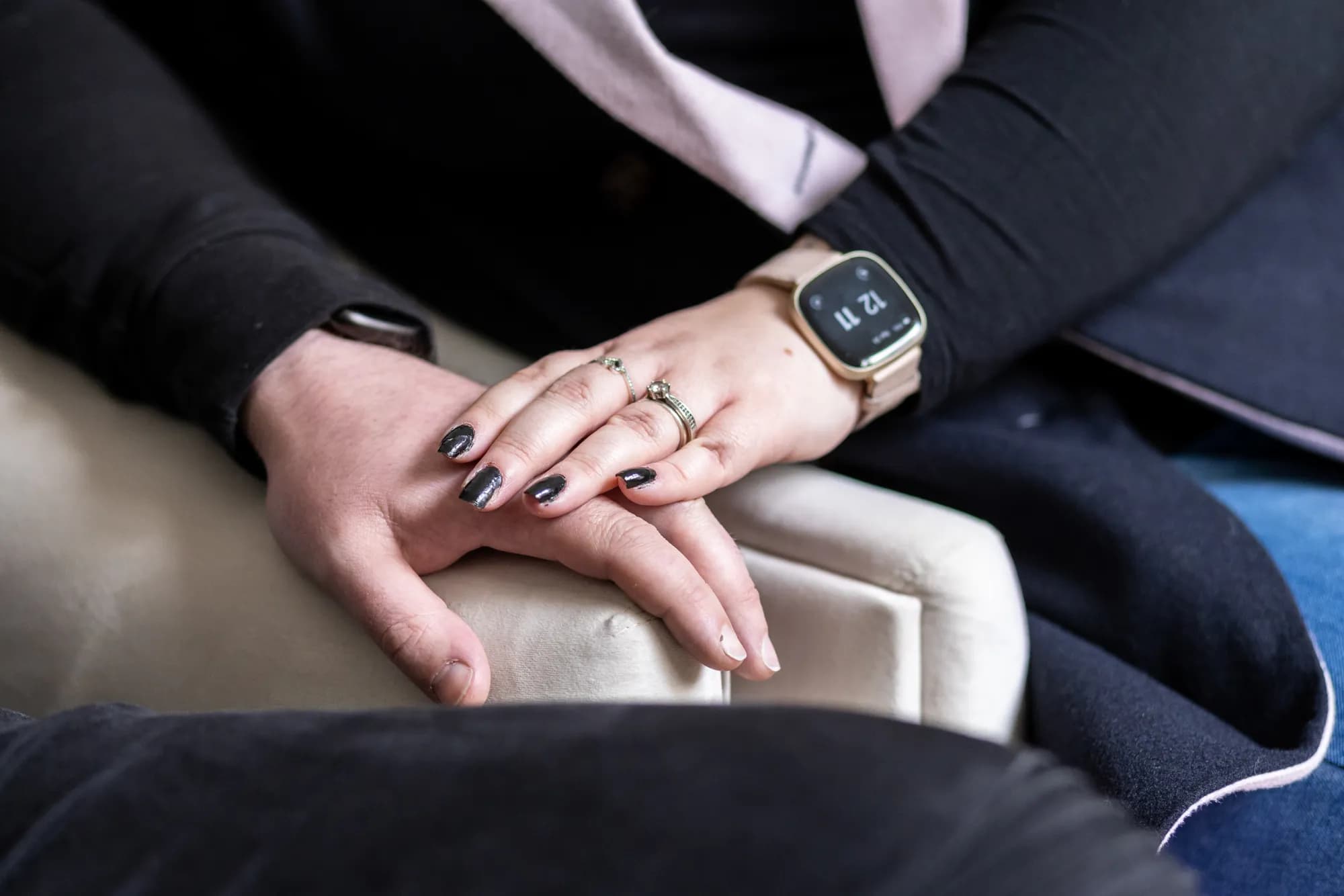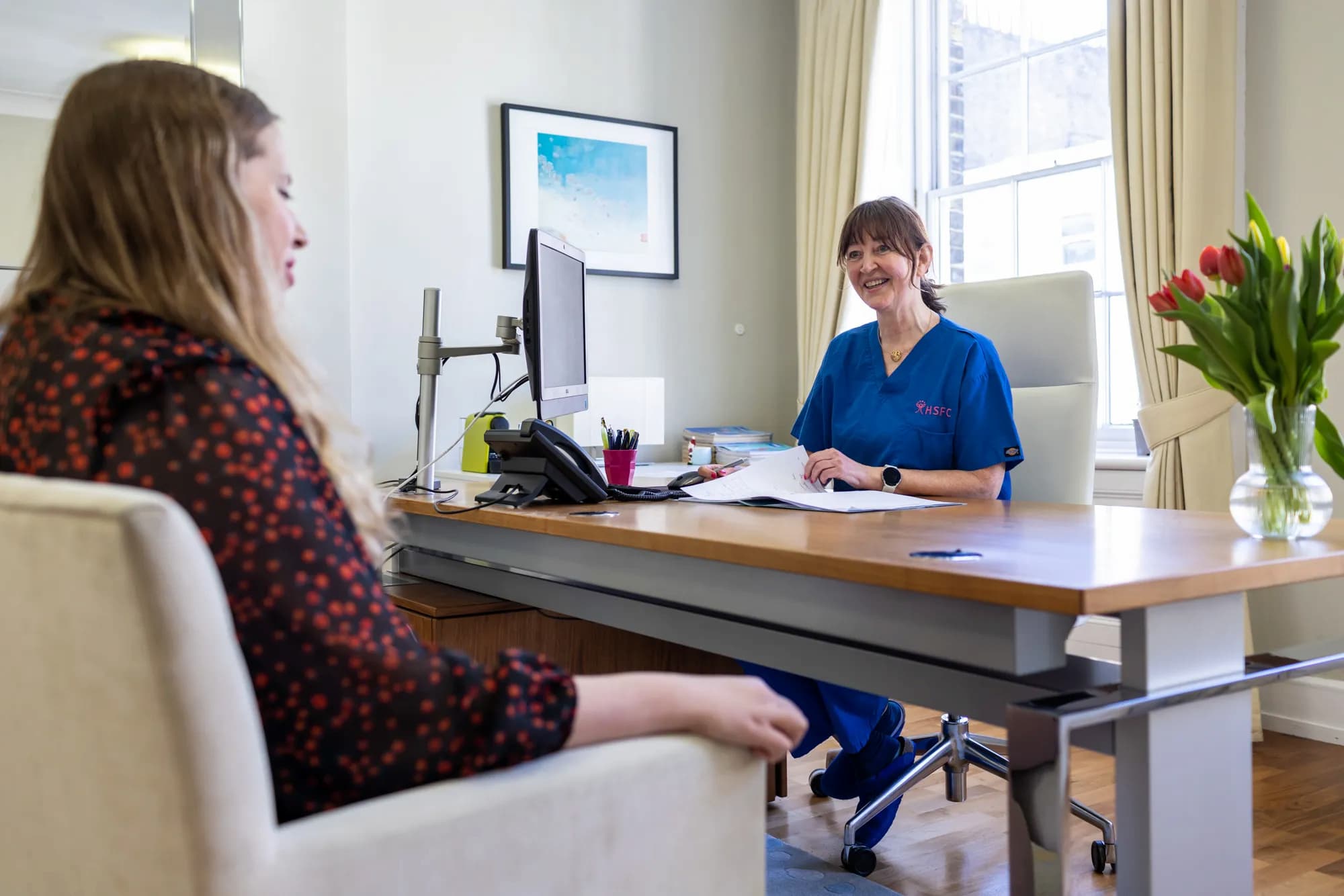

A special gift like this, takes a special someone
We support everyone’s dream to have a family at our clinic. But that’s only made possible with the extraordinary generosity of donors like you. With your incredible gesture of egg donation, we can give hope to couples with reduced chance of having a family.
It’s a truly amazing gift that can bring a lifetime of happiness to people who so want a child of their own. So throughout the process, we’ll make sure you feel fully supported – and valued – by the expert care of our fertility team. And as a small token of gratitude and any inconvenience, you’ll be compensated with the HFEA approved amount of up to £985.
Become a Donor
Is egg donation right for you?
We understand that becoming an egg donor is a deeply personal decision with many issues to think about. So below you’ll find some more information on what’s involved to help you decide if it’s something you might want to do.
Why do some women need egg donation?
Egg donation is desperately needed by women from all walks of life and for all sorts of reasons. Yet the most difficult task is recruitment. In the past, donors were predominantly women undergoing IVF who would donate their surplus eggs. However, successful new embryo freezing techniques have meant egg donors are now needed more than ever.
If you decide egg donation is something you choose to offer, you’ll help women:
- Born without functioning ovaries (e.g. Turner syndrome)
- Who’ve had their ovaries removed for cancer, ovarian tumour, or endometriosis
- Whose ovaries were damaged by chemotherapy or radiotherapy
- Who have recurrent IVF failures
- With inheritable conditions e.g. sex linked diseases such ashaemophilia, Duchene’s muscular dystrophy and Huntington’s chorea, or other chromosomal or genetic abnormalities which could be passed on to the children
About egg donation – the treatment process
Step 1: Stimulating your ovaries
Step 2: Collecting your eggs
Egg Donor Treatment Path
FAQs
Your legal rights and responsibilities explained
In the UK, new legislation from the HFEA allows clinics to compensate donors (up to £985) for their travel and expenses. However, this remains a controversial issue with many questioning whether paying donors is morally correct. For that reason, countries like France, Germany, Norway and Sweden ban egg donation completely.
Another issue is anonymity. Some donors would like to meet their recipient and vice versa. But this can cause issues, especially if one party wants to remain anonymous. However, all fertility treatment in the UK, including egg, embryo and sperm donation, is strictly regulated by the HFEA. The HFEA code of practice stipulates that all donors and recipients (excluding known donors) must remain anonymous to each other. We take a lot of care to make sure that strict confidentiality and anonymity is maintained. Then at the age of 18, all children born as a result of donation have the right to get information about their donor from the HFEA including their full name, last known address and date of birth. If this happens, the HFEA is required to make a reasonable attempt to contact the donor and forewarn them before disclosing their details to the donor conceived child.
Who can donate their eggs?
Any healthy woman between the age of 18 and 35 years can be a donor. Ideally you’ll already have a healthy child (or children) of your own and there should be no family history of genetic or inherited diseases, or mental illness.
If you tick the above boxes and you’re still interested in helping another woman have a much-wanted baby, the first step is a consultation with a doctor. They’ll take your medical history and carry out a series of tests including a physical examination and an ultrasound scan to check your uterus and the ovaries. You’ll also be offered counselling so you can talk about the social and psychological issues involved.
Afterwards we’ll screen you for all the following with a single blood test and two swabs:
- Full blood count
- Blood group and Rhesus type
- HIV and HTLV
- Hepatitis B and C
- Syphilis (VDRL)
- Cytomegalovirus virus (CMV) antibodies screening
- Chromosomal analysis
- Cystic fibrosis screening
- High vaginal swab
- Cervical swab for gonorrhoea and chlamydia
- In non-Caucasian donors, other screening tests are carried out in suitable cases
- Sickle cell tests for Africans
- Thalassaemia screening for Asians and Mediterraneans
- Taysach’s disease screening for Jews
Who will receive your eggs?
You and a recipient will be matched for ethnicity, and physical characteristics such as eye-colour, hair-colour, skin-colour, height and build. In the UK, we also match your cytomegalovirus virus (CMV) status to that of the recipient. For example, if the recipient is CMV (IgG) positive, she can use a CMV (IgG) positive or negative egg donor. But if a recipient is CMV negative, she can only be matched with a CMV negative donor.
All recipients will be screened for full blood count, HIV, Hepatitis B and C, Chlamydia
Rubella immunity, blood group and Rh and must meet the following criteria:
- Up to the age of 51 years
- No history of serious medical illnesses
- No contra indication to pregnancy
- No history of mental illnesses
- Body mass index less than 35
Screening for recipients
The following screening tests will be carried out:
- Full blood count
- HIV
- Hepatitis B and C
- Chlamydia
- Rubella immunity
- Blood group and Rh
Matching of donor and recipient
Usually, donors and recipients are matched for ethnicity, and physical characteristics such as eye-colour, hair-colour, skin-colour, height and build.
In the UK, according to the Human Fertilisation and Embryology Authority (HFEA) guidelines, the donor’s cytomegalovirus virus (CMV) status should be matched with that of the recipient. If the recipient is CMV (IgG) positive, she can use a CMV (IgG) positive or negative donor. If a recipient is CMV negative she can be matched with a CMV negative donor only.
Risks and complications of treatments
- Ovarian Hyper-Stimulation Syndrome (OHSS). When the donor responds too well to the stimulation and produces a lot of follicles (and eggs), she runs the risk of developing OHSS. This can be mild, moderate or severe. Here the woman feels unwell, has nausea, sometimes vomiting, abdominal bloating, difficulty in lying flat, difficulty in breathing and passing small quantities of urine. Donors are carefully monitored with frequent scans and blood tests. If there are a lot of follicles, the dosage of the drugs may be reduced. They are advised to drink a lot of fluids which includes water, fruit juice and milk. If the OHSS is severe, the treatment may be abandoned.
- Pelvic infection. As the egg collection is performed trans-vaginally, the needle passes through the vagina and this can introduce infection into the pelvis. It is important to do swab tests before commencing the treatment. If there is any evidence of infection in these tests, it can be treated appropriately first. Antibiotics are given as a preventative meausure at the time of egg collection.
- Ovarian cancer. There have been a lot of studies to see if these hormonal injections cause an increased risk of ovarian cancer. So far, they have not been able to prove any link.
- Unplanned pregnancy. If the donor is not careful, and has unprotected intercourse during the treatment period, particularly the two weeks following egg collection, she can become pregnant. This can come as a surprise if the donor is not planning for a pregnancy
Treatment synchronisation
Women who still menstruate will have hormonal suppression. This can be carried out in the form of daily injections or daily nasal spray or a single depot injection. Once the hormonal suppression has been confirmed by scan and/or blood test, they will be started on oestrogen tablets/patches to prepare the lining of the womb. Women who have stopped menstruating can straight away start with oestrogen tablets/patches without hormonal suppression. This is done as soon as the donor is started on the injections for ovarian stimulation to ensure that the recipient is ready for the implantation when the donor undergoes egg collection.
When the donor has egg collection, the recipient will be started on progesterone supplementation in the form of pessaries. The embryo transfer will be performed 3-5 days after egg collection. Surplus embryos will be frozen for future use. Pregnancy tests are usually performed in two weeks time. During this period Oestrogen and progesterone will be continued for the recipient. In the happy event of the test being positive, they should be continued for another two months (until 12 weeks of gestation).
How to contact the donor-conceived register?
All donor-conceived adults at the age of 18 years, have the right to contact the Donor-conceived register, to identify their genetic and biological parents.
The UK-based Donor Conceived Register (DCR) matches donors and donor-conceived people and/or donor-conceived people sharing the same donor using accredited DNA testing, and provides counselling and peer support.
Preparing for that day
Fertility clinics, Donors, and parents all recognise the importance and emotional impact that this information may present. The HFEA provides a lot of supportive information on preparing for the process.

"The little sacrifice I’m making could change someone’s life"
Zoe

Ready to take the next step?
Book a consultation with one of our doctors to get expert advice on how we can support your donor journey.